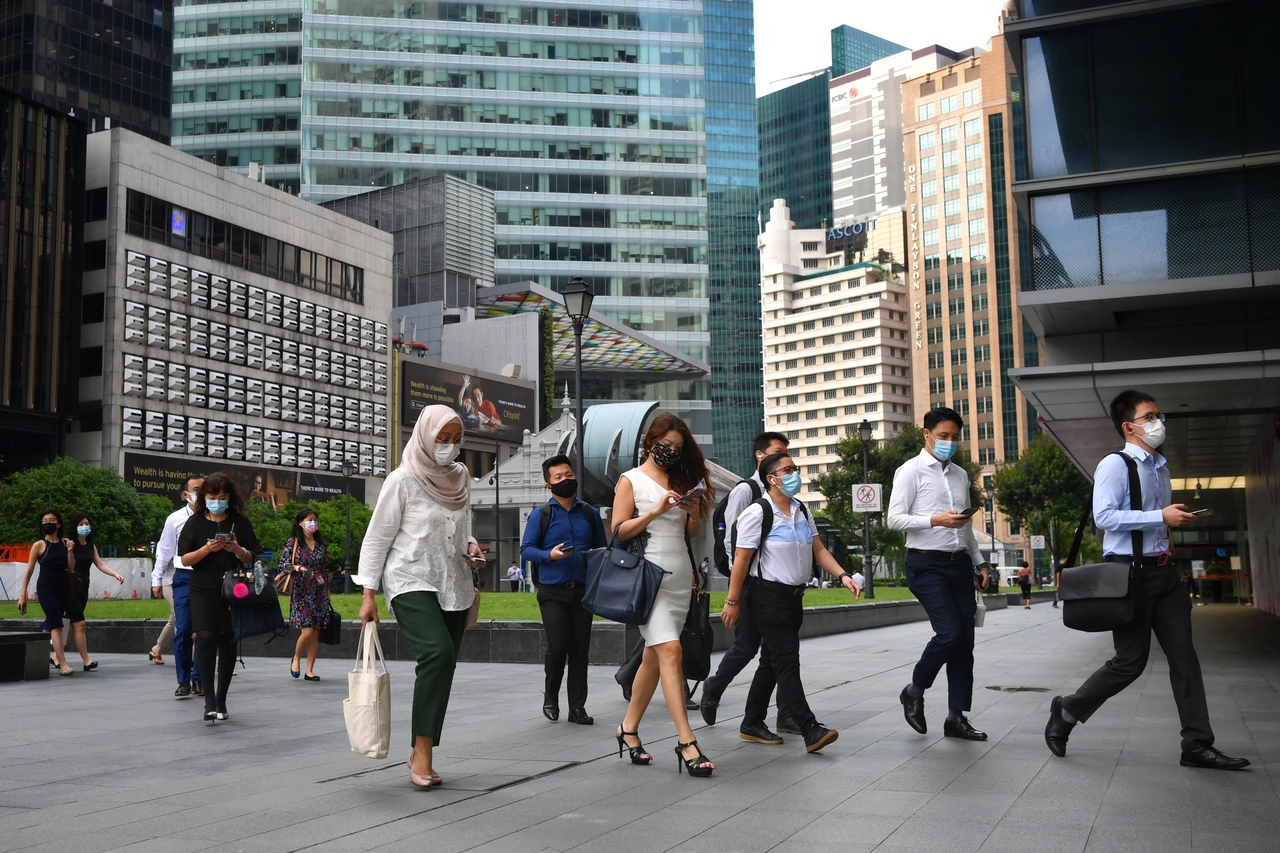Who SID hopes to recruit: People who will challenge the norms
Sign up now: Get ST's newsletters delivered to your inbox

Lawyers, bankers and economists are among some of the mid-career professionals SID has hired, said a senior director at the division.
ST PHOTO: CHONG JUN LIANG
SINGAPORE - Singapore's external intelligence agency is seeking recruits with fresh perspectives, who will challenge orthodox practices in the organisation and prevent groupthink.
A senior director at the Security and Intelligence Division (SID), who used a pseudonym, Michael, for operational security reasons, told reporters on July 15 that as the spectrum of its work has expanded, relying on just the current talent pool is no longer sufficient.
The division, which provides intelligence and assessments to Singapore government agencies and comes under the Ministry of Defence, launched its official website on Monday (July 19) as part of efforts to hire people from more diverse backgrounds.
Michael said SID's work has grown from geopolitical analysis of external developments that could affect Singapore's national security, to counter-terrorism in the early 2000s which posed a "direct threat", to making sense of cyber attacks and information warfare more recently.
"You need people with different perspectives. I think you need people to challenge the norms of what the current thinking is, because if you don't, then you go into groupthink," noted Michael who has worked in SID for 20 years in operations and corporate roles.
"So one of the cultures that we really try to move in this organisation is that sense of challenging the norms, and being almost the devil's advocate of what else can go wrong, and why are we thinking this way. Is this the right way of thinking in the first place?"
He added: "When you bring in fresh perspectives and allow them to challenge the system, I think you're going to get a lot richer analysis and assessment that can serve the Government better."
While the bulk of new recruits used to be fresh university graduates, lawyers, bankers and economists are among some of the mid-career professionals it has hired, he said.
An economist could help to make sense of economic numbers that would have political implications. A lawyer could advise on legal boundaries and international law, while a banker could bring in knowledge of the financial system, he noted.
The work has "real impact on Singaporeans", said Sophie, a senior analyst from the research department who has been with SID for eight years and uses that pseudonym.
She added that she was invited to a tea session with the organisation in her third year of university, and the passion of the officers left an impression on her.
"I would also say that no one really joins SID as a full-fledged intelligence professional. There isn't really very much we can study that directly prepares us for the work, and so then the organisation is really one that focuses a whole lot on training," said Sophie who leads a team of about four people.
SID was established in 1966 under the then Ministry of Interior and Defence.
As it is now under the Ministry of Defence, it reports to the Defence Minister, although the assessments it provides go to the Cabinet and other ministries, said Michael.
Asked if SID officers' safety and well-being are at risk, he added that it has "very strong risk mitigation and risk management measures", starting with ensuring their identities are not known publicly.
He also said it would not be right to call SID an espionage agency. "I don't think that would be the correct description of us because there are many things that we do and many sources of information that we get."
On remuneration, SID follows the same government payment schemes. However, people with "special skills", especially those which are very marketable, could receive "market adjustment allowances", said Michael.
The recruitment process typically takes about three to four months, and can go up to six months. The process includes security clearances, psychological evaluations as well as language and other tests, he added. The ability of candidates to work in teams and their leadership competencies and potential are also assessed.
On attrition rates, he said while they remain very low, the organisation realises that it would be unrealistic to expect officers to stay for 30 years and then retire.
"People might not see a lifelong career... And I think we have to expect that and we should allow that to happen," said Michael, adding that former officers should not disclose publicly that they worked for SID, for instance in their LinkedIn profiles.
The ones who tend to leave are those with technical skills that are highly sought after, although the numbers remain small. SID encourages those who leave to come back if they want to, he noted.
On job satisfaction, Michael said having the opportunity to brief political leaders directly on certain issues was a highlight for him. "What you said mattered," he said and policy positions were made from those briefs.
"Those (briefings) were quite priceless actually in terms of experience. It just gives you an incredible sense of purpose of what you are doing.
"And it didn't matter whether your name came out in the press... what's important was that we got the job done."


